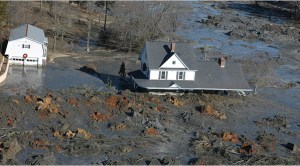The Friday Photo
July 29, 2016

Wednesday afternoon I stopped to get gas after picking up some groceries in Milledgeville, the “big” city to the west of my home town of Sandersville. A small SUV pulled up at a pump diagonally to mine. The driver, a woman maybe in her mid 60s, jumped out of her car and started walking toward me, smiling as she approached me standing at the rear corner of my car.
With great enthusiasm in her voice she asked me where I got my bumper sticker. She looked so happy, like she had finally come across another kindred soul, that she gave me a high five and immediately started telling me how worried she is about Donald Trump becoming President.
I replied that the racism and hate people feel comfortable sharing is horrifying, adding that the judgmental attitudes about people who don’t look or behave like them is stunning.
She said she’s taken issue with people she knows who judge gay people as sinners, saying that her response has been, “Do you believe God made everyone, and does God make mistakes?”
From there she said friends and family had turned away from her after she came out as gay, and that others in her family have been treated similarly.
Think about that- a family shunned one of their own, not because she was a murderer or thief, but because she wanted to date women instead of men.
This woman then looked at my car tag and realized I live in a neighboring county, and she said, “You live in Washington County and you have this one your car? You are a brave woman.”
It’s not so hard to be a privileged, white, straight woman driving around rural Georgia with a Democratic pride sticker on your car. When it helps you find members of your tribe while doing the ordinary things in life, it is even easier.
Thank you Bonnie, for extending your hand, telling me your name and story, and saying We Are Stronger Together.



